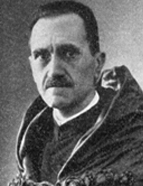

After the disastrous closure of the Faculty of Letters of Porto by the Military Dictatorship, Damião Peres decided to apply to the Faculty of Letters of the University of Coimbra, and submitted himself to public examination with a paper entitled A diplomacia portuguesa e a sucessão de Espanha (1700-1704) (Portuguese diplomacy and the Spanish succession, 1700-1704). This was based on research he had done in various archives, not only Portuguese ones. Above all, he used unpublished documental evidence analysing the different positions adopted and rejected over the years. He described apparently unstable situations, ranging from the alliance with Louis XIV and Philip V to the attempt at neutrality in the neighbouring conflict so that integration of the British, the Dutch and the Germans within the Great Alliance might finally come about. These were situations in which figures at the forefront of Portuguese representations abroad moved: D. Luís da Cunha (London), José da Cunha Brochado (Paris) and Francisco de Sousa Pacheco (the Low Countries). He talked with an understanding of the international moves made in the game, trying to satisfy a policy that lacked firmness on the part of its protagonists at the court in Lisbon during the negotiations which led to the treaties of 16 May 1703. With these treaties, Portugal began its participation in the conflict that would last for some ten years.
In Coimbra he was appointed to the Chair he had sought. And it was here in this Faculty of Letters that he was to remain for the rest of his academic career until he retired in 1959. However, he did not exert any decisive influence on this institution, where he was the most prestigious of all the history professors, since he primarily devoted himself to his work as Director of the Portuguese Numismatic Museum in Lisbon, a part of the Casa da Moeda or Portuguese Mint, as well as to his numerous publishing activities. Only rarely did he appear to give his classes, travelling up from Lisbon by train which earned him the nickname ‘Professor Railroad’ given to him by a colleague. Perhaps this absence is the reason why António de Oliveira in his retrospective of history teaching and research at the Faculty of Letters in Coimbra only refers to him briefly in passing, without attributing any influence of note to him. Similarly, João Marinho dos Santos, when describing the situation of the teaching of overseas history, does not afford him any decisive position with regard to the teaching of the History of the Discoveries.
